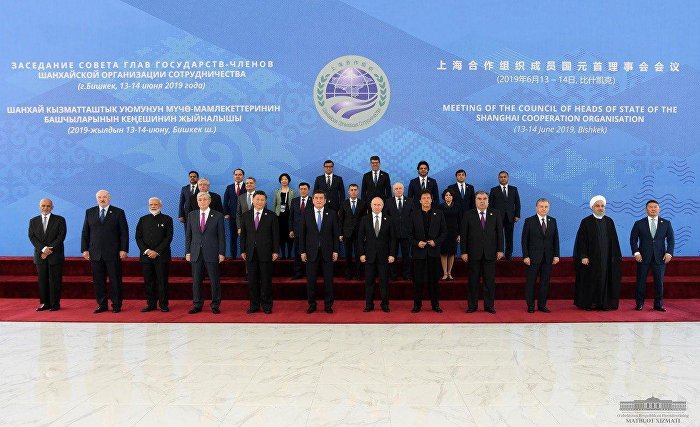
Relations between New Delhi and Islamabad have been quite tense over the last five years. The 14th February 2019, suicide attack in Kashmir’s Pulwama region that was claimed by Jaish-e-Mohammad (JeM) resulted in the Indian Air Force launching airstrikes against the terrorist training camps in Pakistan-occupied Kashmir (PoK) as well as Balakot in Pakistan. This was followed by an air duel in which both sides lost one fighter aircraft each.
The importance of cooperation in the sphere of connectivity dawned on this regional bloc as Pakistan shut down its airspace that had an adverse effect on the aviation industry. Islamabad responded positively to New Delhi’s request to permit Prime Minister of India to use Pakistani airspace while proceeding to attend the Shanghai Cooperation Organisation (SCO). However, India decided against availing this special concession and thus sent a clear signal to the international community that she is in not in a reconciliatory mood and will continue to pursue the policy of “terror and talks cannot go together.”
Prime Minister Narendra Modi played his diplomatic cards very well during the SCO meet at Bishkek. Without taking any name but in a stern message directed at Pakistan, he said that countries will have to come out of their narrow purview to unite against terrorism to fight it, and the nations sponsoring, aiding and supporting terrorism must be held accountable. By recalling the recent Easter terrorist attacks in Sri Lanka and terming state sponsored terrorism as the biggest threat to the world Modi managed to draw international attention to the fact that a large number of internationally banned terrorist groups fighting in Kashmir, Afghanistan and Iran were based in Pakistan.
Pakistan Prime Minister Imran Khan tried to counter Modi’s assault by making a reference to Kashmir without naming it when he spoke about how Pakistan condemns terrorism in all forms including state terrorism against people under illegal occupation. However, his did not succeed in getting any support for his condemnation of “terrorism against people under illegal occupation” as this issue finds no mention in the SCO joint declaration. On the other hand, Islamabad’s stand that “freedom struggle in Kashmir cannot be equated with terrorism” has suffered a severe blow as the Bishkek Declaration has stressed that acts of terrorism and extremism cannot be justified.
Prime Minister Narendra Modi and Pakistan’s Imran Khan may have exchanged pleasantries on Day 2 of the summit in Kyrgyzstan’s capital Bishkek but there is no scope of any thaw in Indo-Pakistan relations. Khan did talk about the need for India and Pakistan to resume the dialogue process to normalise relations but Modi is adamant that there can be no talks unless terrorist activities in Kashmir ends. Here Modi seems to have a definite advantage as Pakistan is under severe pressure for allowing terrorist groups that are attacking neighbouring countries to have their safe-sanctuaries on its soil.
Pakistan is in deep trouble. Washington has cut down its aid because Islamabad isn’t “doing enough” in its war against terror and Financial Action Task Force (FATF) has put Pakistan on its “Grey List” for not taking appropriate action to stop financial dealing of internationally designated terrorist groups. Pakistan is still to recover from the shock of Beijing removing its “technical hold” on the proposal to designate JeM chief Masood Azhar a “Global Terrorist.”
The sooner Islamabad realises that no ally will ever be willing to provide indefinite support on terrorism related issues the better it would be for Pakistan. It needs to take prompt action to avoid getting inextricably stuck in the quicksand of terrorism.
The whole world sees militant attacks such as the ones on Pathankot Air Base, in Uri Army Camp and suicide car bomb attack in Pulwama as acts of terrorism. The situation created by Pakistan is also spoiling the image of the Kashmir struggle. New Delhi won’t talk unless such attacks end and though Khan may keep requesting for dialogue, it is unlikely that Modi will relent and neither will he accept any offer of mediation by the superpowers or influential nations. In comparative terms, India’s financial condition is far better than Pakistan, which is now surviving on generous aid from Gulf States and loans from China and the IMF (International Monetary Fund).
Diplomatically, New Delhi wields much more authority and influence than Islamabad. Militarily, New Delhi has luxury to add sophisticated military hardware to its arsenal, Islamabad cannot afford to get into an arms race. The environment has pushed Pakistan into the proverbial Catch-22 situation. It can either react as the world expects it to act or get ready to face absolute marginalisation.
Prime Minister Imran Khan needs to understand that instead of wasting huge sums of money on defence purchases, it can be better utilised to improve living conditions, alleviating poverty and providing healthcare. Therefore, dismantling the existing militant infrastructure in Pakistan is a wise step and a win-win situation for all. It will help in improving Indo-Pakistan relations, which in turn will open the doors for dialogue and this will facilitate normalising relations. Once this happens, the two countries can work amicably towards resolving the Kashmir issue.
